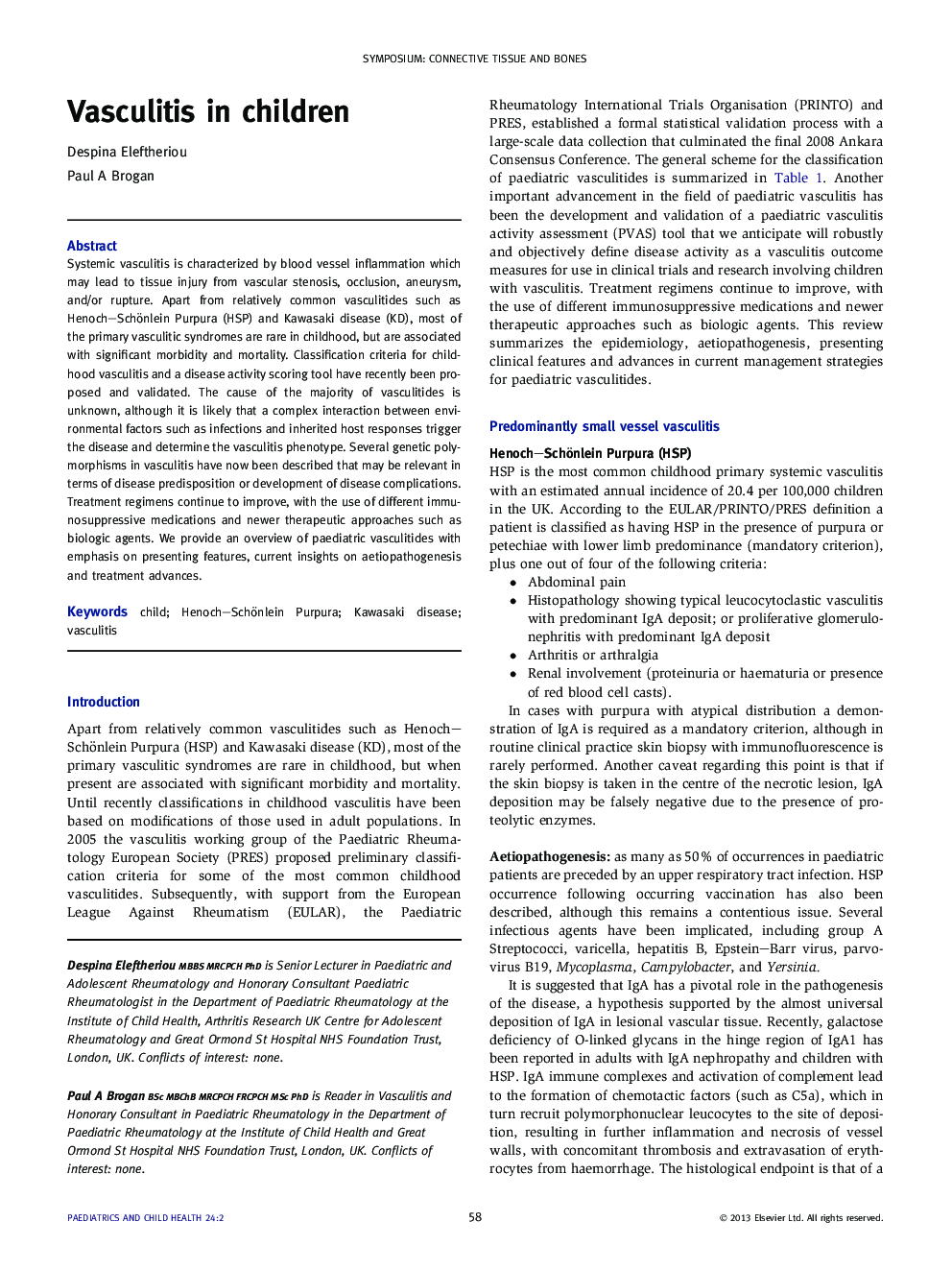| Article ID | Journal | Published Year | Pages | File Type |
|---|---|---|---|---|
| 4172090 | Paediatrics and Child Health | 2014 | 6 Pages |
Systemic vasculitis is characterized by blood vessel inflammation which may lead to tissue injury from vascular stenosis, occlusion, aneurysm, and/or rupture. Apart from relatively common vasculitides such as Henoch–Schönlein Purpura (HSP) and Kawasaki disease (KD), most of the primary vasculitic syndromes are rare in childhood, but are associated with significant morbidity and mortality. Classification criteria for childhood vasculitis and a disease activity scoring tool have recently been proposed and validated. The cause of the majority of vasculitides is unknown, although it is likely that a complex interaction between environmental factors such as infections and inherited host responses trigger the disease and determine the vasculitis phenotype. Several genetic polymorphisms in vasculitis have now been described that may be relevant in terms of disease predisposition or development of disease complications. Treatment regimens continue to improve, with the use of different immunosuppressive medications and newer therapeutic approaches such as biologic agents. We provide an overview of paediatric vasculitides with emphasis on presenting features, current insights on aetiopathogenesis and treatment advances.
